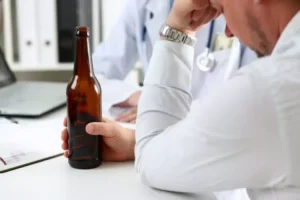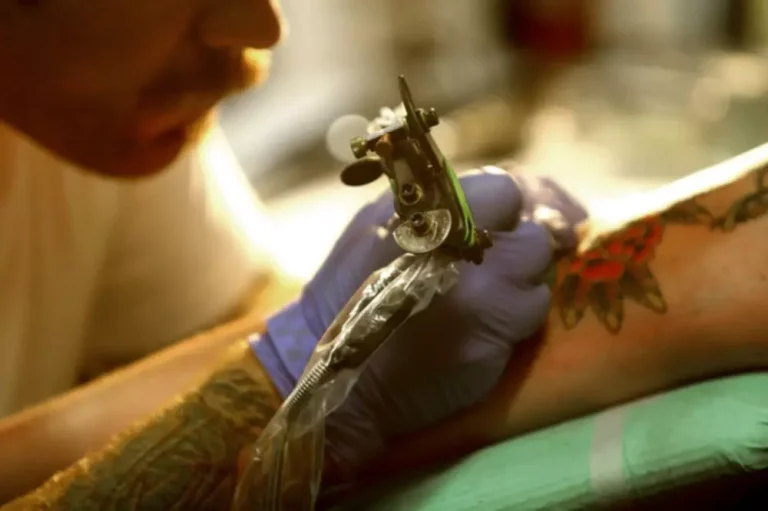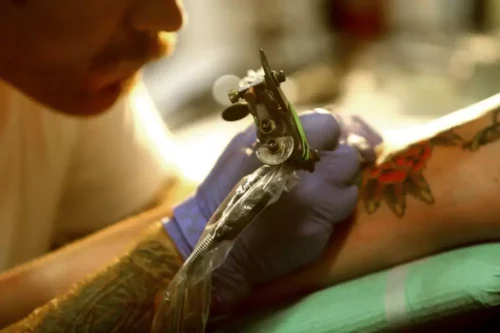
Rather, it is an umbrella term not specifically defined and refers to kidney diseases caused by alcohol use. Alcoholic kidney disease often refers to any kidney disease caused by heavy alcohol use. In addition to causing dehydration, alcohol increases blood pressure by causing blood vessels to constrict. They respond to high blood pressure by removing fluid from the blood, which decreases its volume and the pressure it causes.
Symptoms of Alcohol-Related Kidney Problems, Kidney pain after alcohol
The ability of the kidneys to recover will depend on many factors. How long the person engaged in heavy alcohol use, the presence of other health problems and the types of kidney damage that occurred play an important role in how recovery progresses. The liver plays a role in maintaining blood flow to the kidneys, and alcohol-related liver problems can further impact kidney health. One reason alcohol may affect the kidneys is through acute kidney injury. This may result from high levels of toxins leading to tissue injury and inflammation.
Alcohol Can Affect the Kidneys Through High Blood Pressure
Dehydration from beer and purines in it can worsen existing stones or raise your risk of forming new ones. While alcohol doesn’t directly create stones, excessive consumption can dehydrate you. Dehydrated urine concentrates waste products, making them more likely to crystallize and form stones. Alcohol is a diuretic that causes you to urinate more and become dehydrated, especially if you’re drinking a lot. Surgery or medication may be needed in certain cases of liver disease. In cases of liver failure, a liver transplant might also be required.
Ohio Recovery Center
- These are signs that the kidneys are not working as they should, and they can be symptoms of acute kidney injury due to a high alcohol consumption.
- According to the National Kidney Foundation, regular heavy drinking can double the risk of chronic kidney disease.
- A little alcohol—one or two drinks now and then—usually has no serious effects.
It could affect one or both sides of the body and be minor or severe. The National Kidney Foundation estimates that each year more than half a million people go to emergency rooms for kidney stone problems. Always prioritize seeking medical attention for persistent or severe pain.
The kidneys are about the size of our fists and are located below the rib cage on either side of our spines. Kidney pain may be experienced as back pain, but if there is kidney damage resulting from alcohol use, other symptoms may occur. We review the symptoms of kidney damage and kidney failure further along in this article, but first let’s discuss how alcohol interacts with the kidneys. A 40-year-old male, Mr. Brown, reported experiencing mild, intermittent flank pain after consuming several glasses of wine at a social event.

- While there is some conflicting data, the common consensus is that alcohol negatively affects your kidneys in several different ways.
- Understanding the symptoms and diagnostic process is crucial for early intervention and management.
- Ultrasound showed no significant abnormalities in kidney structure.
- Finally, maintaining a healthy weight can help prevent further strain on the kidneys.
- Detox and rehab can take place in inpatient or outpatient settings.
- Excessive alcohol consumption can lead to various health problems, including kidney pain.
Being in pain or discomfort after drinking alcohol is more common in people with liver disease. In particular, if you drink excessively or are an alcoholic, this is likely. The pain was constant for several hours, significantly impacting her ability to move or sleep. Experiencing kidney pain after alcohol consumption can be alarming, prompting concern about potential kidney damage. Understanding the severity requires medical attention, and sometimes, such pain necessitates a hospital visit.

Early detection and intervention are crucial for minimizing long-term damage. Assessing alcohol-related kidney damage involves a combination of methods to evaluate kidney function and identify the extent of any damage. Blood tests, such as creatinine and blood urea nitrogen (BUN) levels, provide crucial indicators of kidney function. Urine tests analyze urine for protein (proteinuria), which is what is Oxford House a sign of kidney damage. Imaging techniques, including ultrasound and CT scans, can visualize the kidneys, revealing structural abnormalities or signs of infection or other complications.


For example, some people may develop kidney pain while drinking due to a UTI. In that case, the doctor will prescribe antibiotics to treat the infection. Exhaustion, urination changes, kidney pain from alcohol abuse appetite loss, and fluid retention are among the earliest signs. Kidney pain while drinking is another symptom to look out for, as it may mean kidney damage is progressing.

Liver disease and neuropathy
If you also struggle to quit drinking, you may have an alcohol use disorder. Contact Simcoe to learn about our alcohol treatment programme and get the help you need today. People with kidney disease should talk to their doctor about how much alcohol is too much. If all else fails, it may be best to avoid alcohol altogether.
- The exact amount of alcohol someone can safely consume depends on multiple factors.
- Dehydration, a common consequence of alcohol abuse, can exacerbate this pain.
- The men were found to have high levels of a protein called albuminuria in their urine, which is indicative of kidney failure.
- AKI can be caused by the shock binge drinking causes to the kidneys.
How Does Alcohol Harm the Kidneys?
It may be mild or severe and can be felt on one or both sides of the body. This condition is typically not life-threatening, but the nerve damage from alcoholic neuropathy is usually permanent. Alcohol increases the acidity of your urine, which can irritate the lining of your bladder and cause a UTI. UTI symptoms include https://ecosoberhouse.com/ discomfort when urinating, blood in urine, dark or foul-smelling urine, abdominal or back pain, frequent urination, and/or fever. They are responsible for filtering waste from your blood and regulating levels of minerals and water in your body. Kidney pain treatments are almost always focused on treating the cause of the pain rather than just managing the pain itself.








